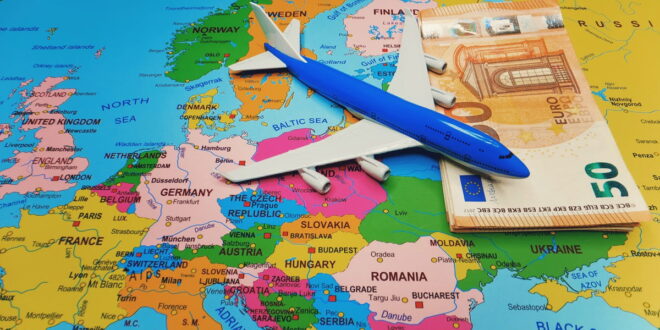Are you planning a trip to Europe by 2025? Be prepared to add new taxes for tourists as more countries increase or introduce travel fees.
Credit: Shutterstock and M-Production
From Greece to Gran Canaria, more destinations are charging travellers to visit – but will it change the way we travel?
You’ve already booked your flights, selected the perfect Airbnb and made dinner reservations. But wait – did you check the tourist tax?
Tourists are asked to dig into their pockets a bit more. Some of the most popular tourist destinations in Europe, and even beyond, are quietly adding extra charges for your stay. And while a few euros here and there might not seem like much, the costs can add up – especially for longer holidays or larger groups.
What is the purpose of this tax and will it change our travel habits?
Where tourist taxes apply in 2025 – and how much they cost
Tourist taxes go by many names – city tax, visitor levy, green fee – but they all work the same way: you pay a little extra for the privilege of visiting. In most cases it is added to the hotel bill, or charged by night and per person. In some cases, such as in Thailand, the fee is a one-time charge at the border.
Edinburgh is the first Scottish town to introduce it this year. Although the tax won’t start until July 2026 it will affect any trips booked from October of this year. Tax will be charged on all overnight stays paid, including those from other parts of the UK.
Greece is also raising its rates. If you’re planning a winter getaway, expect to pay €2 per day, but if you’re heading there during the summer, it jumps to €8 a day. That’s an extra €56 per person for a week in the sun.
Lisbon, Porto Faro and Madeira are just a few of the towns and cities in Portugal that have already implemented a tax. The Azores are joining in from January 2025, adding a €2 per night fee. And in France, Paris is sticking with its Olympic-era price hike, with tourists paying up to €15.60 per night depending on the type of accommodation.
Amsterdam quietly increased its tourist tax from 5% to 12.5%, making it the most expensive in Europe. Venice will charge €5 a day to enter on selected dates, or double that if you don’t book ahead. Even Mogán, a small town in Gran Canaria, is getting in on the action, adding a 15-cent daily fee for visitors staying in hotels or rentals.
Thailand is expected to introduce a new tax by mid-year – a one-time fee of around € 8,20 for those arriving by air, slightly less for arrivals by land or sea.
So, if you’re heading somewhere sunny next year, chances are you’ll be paying a little more than you did before – even if your hotel rate hasn’t changed.
What impact do tourist taxes have on travel and holiday spending?
Then things start to get interesting. The majority of these taxes don’t seem to be that high. For most tourists, a few euros per night will not break the bank. But for cities like Venice or Amsterdam, the aim isn’t just to collect money – it’s to gently discourage mass tourism, or at least help cover the wear and tear it brings.
These taxes have worked. Somewhat. Some places have seen a shift in crowds away from peak seasons, or travellers exploring nearby towns. They haven’t had much impact in other places. Many people are still traveling to popular destinations, such as Paris during the summer and Barcelona in spring.
The only thing that can change is the way we spend when we arrive. Travellers are becoming more conservative with their spending when they feel overcharged. That can mean fewer meals out, less shopping, and trimming down on tours or activities – things that matter more to local businesses than city councils.
Taxes are not always unpopular. When visitors see their money being used well – cleaner beaches, better public transport, improved infrastructure – they’re more likely to accept the cost. If the fee seems random or if the destination is already costly, it may be just one more reason to go somewhere else.
More travel news coming soon
 Costa News Spain Breaking News | English News in Spain.
Costa News Spain Breaking News | English News in Spain.





